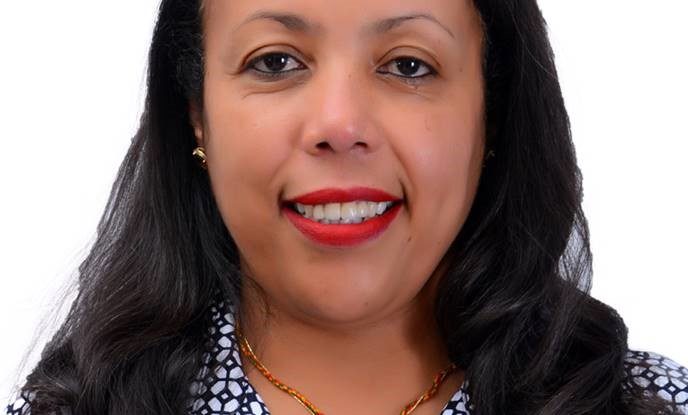Tigist Eshetu is not your ordinary kind of person. Barely three months into her new job as Ethiopian Airlines’ regional director, India subcontinent, Eshetu seems to have grasped the Indian mindset and, despite the present coronavirus crisis, remains an optimist.
Eshetu obtained a Bachelor of Arts degree in management and public administration from Addis Ababa University in Ethiopia and a Masters in Business Administration from Lincoln University in Pennsylvania. She tells Runway Girl Network that she immersed in her studies, learning different business models and how to adapt them to specific environments to drive the best results. Business was in her blood. “I never wanted to be a pilot. I did not have the skills for it,” she says candidly.
Since then, Eshetu has enjoyed a two-decade stint at Ethiopian Airlines, gaining experience in operations, cargo and pricing. She worked as area manager Zambia for the airline, prior to assuming her current role in Mumbai. Her varied experiences will provide an opportunity to elevate Ethiopian Airlines’ operation in the Indian Subcontinent.
“This assignment is exciting. The new experience, exposure, setup and different traditions are part of my learning,” says Eshetu.
She reckons there are immense similarities between Ethiopia and India, including the food, close communities and social environment. “What is different is India’s climate of extremes.” Addis Ababa, which is located at 2,300m (7,500ft) above sea level, has a mild climate.
Over the past century during divergent political regimes, the role of women as contributors to the socioeconomic development of the country has been massive. In fact, 124 years ago, the pastoral community which included women defeated an armed Italian army close to the border with Eritrea resulting in Ethiopia being the only African country never to be colonized. Ethiopian-American author Maaza Mengiste said recently: “Women have been there, we are here now.”
Though Ethiopia is still known as a patriarchal society and is grappling with issues of gender equality, positive change is afoot. Ethiopian President Sahle-Work Zewde is a woman, and this could be influencing the younger generation.
Moreover, Ethiopia’s Prime Minister Abiy Ahmed is eager to see gender equality. He took over the reins of the government two years ago, and opted to fill 50% of his cabinet with female ministers.
This transformative agenda has been changing people’s attitudes towards women. Ethiopian Airlines had already received the memo. “Forty percent of the workforce in Ethiopian are women. There is no gender discrimination. We have pilots, engineers and women in every field in the airline,” says Eshetu.
On 8 March, in celebration of International Women’s Day, Ethiopian operated an all-woman crewed flight from Addis Ababa to Washington Dulles where the Boeing 777 was treated to a water salute.
For her part, Eshetu tells RGN that her gender has never stopped her from advancing her career, and she doesn’t believe it has colored her decision-making.
Her appointment in India comes at what is obviously a very challenging time for global aviation. She believes that once the crisis is over, India will pay an important role in Ethiopian Airlines’ recovery and growth.
“Ethiopia is the largest transit point for Indians for the rest of Africa. We hope to make it a tourist hub too,” she says. She notes that the present Bole International Airport hub at Addis Ababa is usually congested, under normal circumstances. Consequently, Ethiopian Airlines plans to build a new $5 billion mega-airport southeast of Addis Ababa.
Related Articles:
- Role models are key to improving industry diversity: LeAnn Ridgeway of Collins
- Attracting girls to STEM requires grassroots change: Eirini Dimitroula
- Sabre’s head of NDC on STEM, #MeToo and the value of sticky notes
- Aviation and tech company chief seeks to increase women in both fields
- Former teacher seeks to attract girls to STEM with Fly Like a Girl
- Gore engineer Alexis Slupe expands PTFE and gender paradigms
- Geven’s Roberta Macciocca balances engineering and business
- SEKISUI exec navigates path between engineering and marketing
- Hamburg program preps young women for aerospace engineering
- LEAP: Cristina Seda-Hoelle turns up the volume










